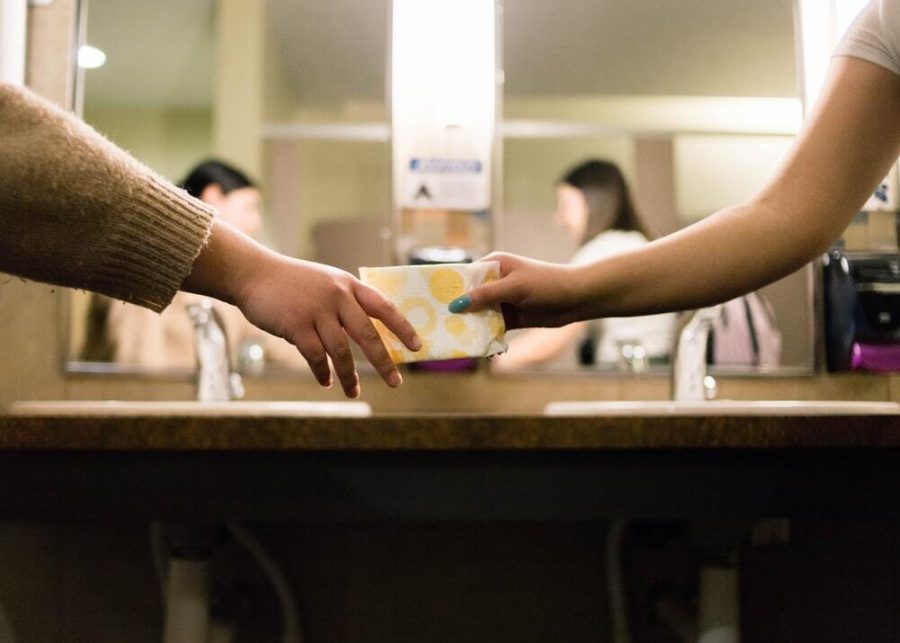Period Problems
Kamakshee Kuchhal ’24 takes a closer look at everything about periods: the misconceptions, the stereotypes, the struggles, and the statistics.
“Mr. Jack? I need to go to the bathroom.” The PE teacher glances up from his clipboard, surveying who dares to interrupt his 30-minute workout. “You couldn’t have gone before?” You have to grit your teeth while smiling before the words “I didn’t plan to have my period” spill out.
Ah. Periods. Although at least 50% of the population have to deal with it at some point in their life, most still don’t know what it even is. The fact that periods are still a topic looked down upon today in society and many people can’t even stand the conversation, girls or gender-fluid people included (because they feel self-conscious), shows just how much progress we need to make. Over time, instead, we’ve only picked up on misconceptions and stereotypes to leave real struggles and science in the dust. It’s time to make a change now.
Periods. Say it with me. Periods. Periods. Periods. There’s nothing wrong with them. There’s nothing wrong with the people that have to go through them. Breaking the stigma that surrounds periods is another step that society should’ve taken a long time ago. It is a phenomenon that isn’t taboo, anything to be ashamed of, or even a personal issue that you have to deal with yourself. What is a period, you ask? No, it isn’t what goes at the end of a sentence. And no, it isn’t where you go after the lunch bell rings. Every month, the lining of tissue around the uterus is thickened in case there is a fertilized egg that needs help growing. If it isn’t required, the extra material leaves the body through the vagina. This is called a period. As a society, we haven’t allowed this new generation space to feel comfortable in their own bodies. A few of my teachers would freak out and redirect me to a female counselor whenever I had a period emergency. In fact, a few female/gender-fluid friends of mine would stray from the topic too because it felt “TMI.” What are we doing? Why are we doing it? What are we telling ourselves to make us hate a natural process that many of us have to experience?
This monthly cycle of blood that comes out of my vagina does not define me. I’ve had people call me “unreasonable” because of the supposed “hormones” released during my period that cause mood swings. If I’m frustrated or depressed, please don’t ask me if I’m on my period. It isn’t only degrading physically, but mentally too. It seems like you don’t care about what I have to say anymore when you pass it off as something that will “blow over” with my period.
And please don’t call us weak. Girls and gender-fluid people that have to deal with their periods aren’t helpless. They can do normal things during their time of the month, even ones that include extreme physical activity. Sure, it can be difficult with how uncomfortable it feels and the cramps that come along with it, but that’s just more of a reason why they are stronger than most give them credit for.
And the cramps? No, we aren’t faking it. And no, it isn’t the same feeling as stubbing your toe or having a headache and it’s fine after a while. The pain is real. Some people have to take a break from school or work while hoping that the relentless pinching will stop for even just 5 minutes.
We aren’t “dirty” when we have our period. This isn’t kindergarten; cooties aren’t the equivalent of having your period. It isn’t toxins secreting out of our body or bodily fluids that didn’t suit us. It’s a lining around the womb that’s a mixture of tissue, bacteria, and a bit of blood. It’s a natural process that all women and some gender-fluid individuals go through to keep themselves healthy. We don’t nag guys about going #1 and #2, right? We do it too. So just because you have the advantage of not bleeding down there every month, it doesn’t make it unsanitary.
Honestly, the only way to counteract the background story we’ve created around periods is to start a new book of our own. By increasing the education received about periods around the world, such as talking about misconceptions, stereotypes, and struggles, means slow progress in the right direction. We need to teach ourselves by not only looking at the statistics and facts but personal experiences and stories. Young children everywhere who’ll receive periods in the future have to learn about keeping themselves healthy down there over the period of a week, where to find sanitary products and how to use them, and how to deal with some of the obstacles that come with a self-cleaning system that keeps us healthy. In fact, it’s important to acknowledge that even if you’d never need to use the knowledge for practical use, it’s still important you know it. We need to start talking about periods more; at home, in classrooms, between friends. As weird as it might seem to do that right now, isn’t it even weirder that half of the world has periods and we barely ever hear about it? This time, when you leave PE class, instead of trying to hide your pad under your sleeve as you run to the bathroom, let’s make a world where people don’t even blink twice seeing it in your hand.
Your donation will support the student journalists of West High School. Your contribution will allow us to purchase Scholarship Yearbooks, newsroom equipment and cover our annual website hosting costs.

(she/her) Kamakshee Kuchhal is a senior at West High School and is super excited for her third (and last) year on West Side Story Print Staff. Besides...





totallynotAry • May 6, 2021 at 11:26 am
Loved reading this article, we really do need more awareness regarding periods and the data given really sells the point perfectly. Also absolutely loved that quote and I can’t wait for more 🙂